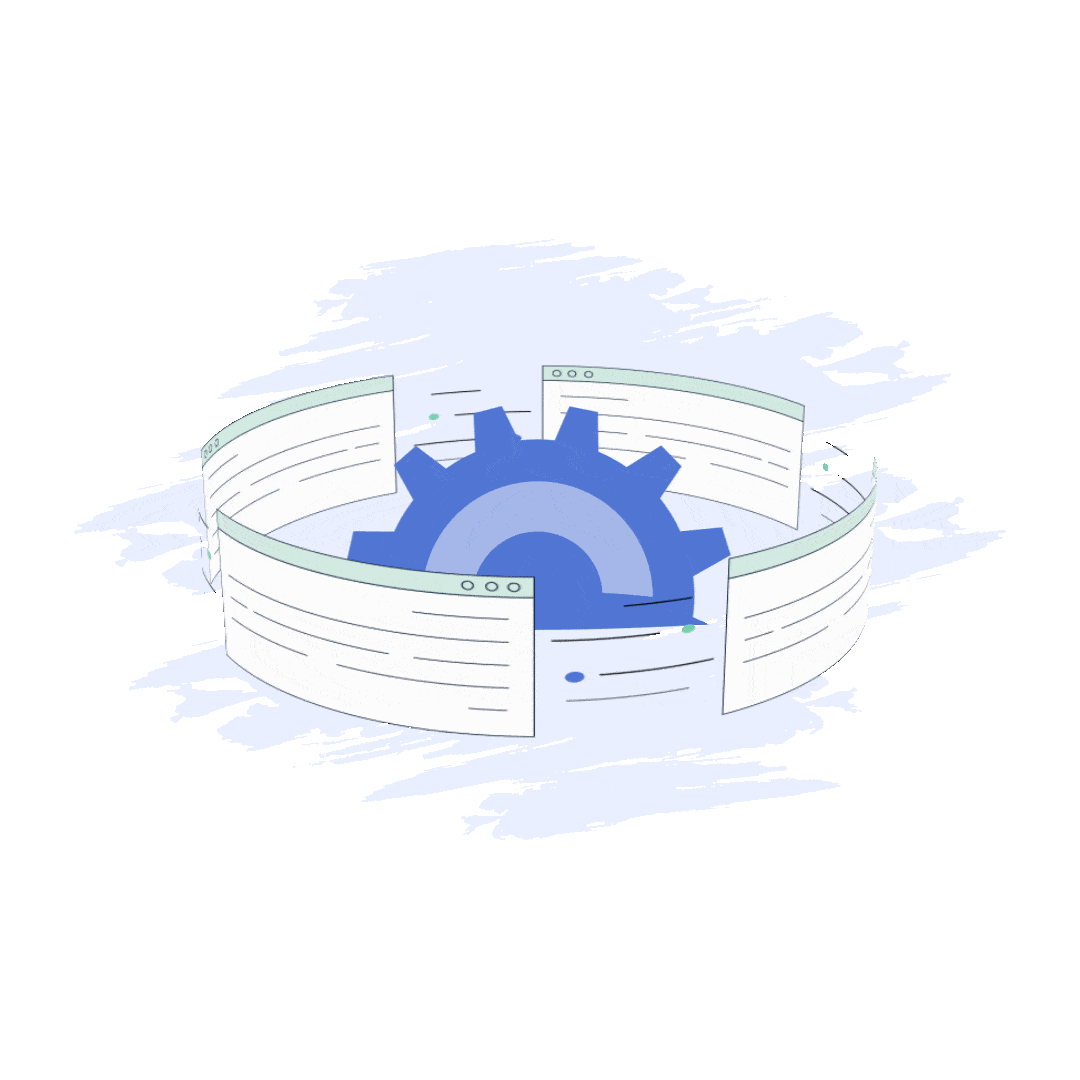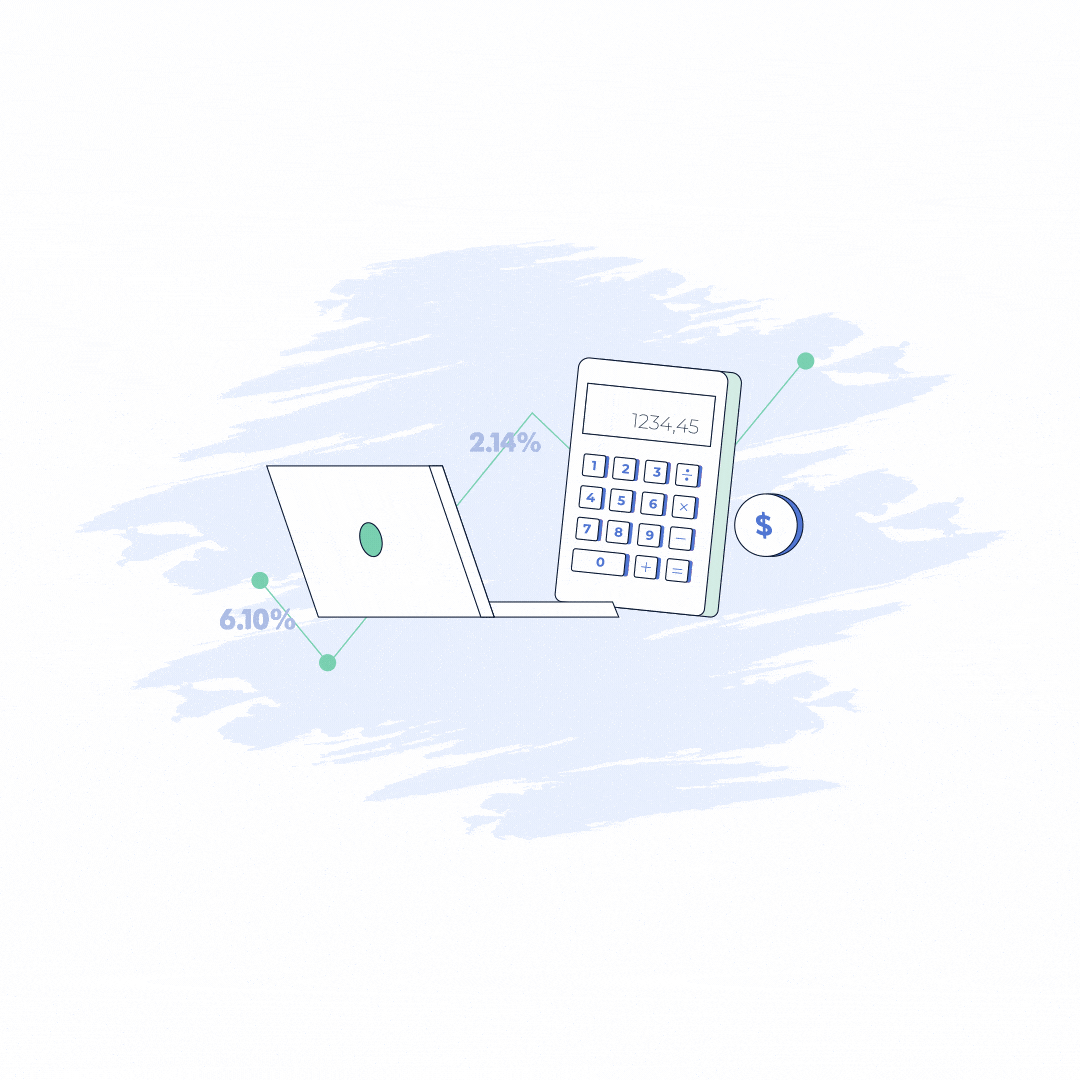Why Zamp?
Combining technology and help from sales tax experts is a game changer.
We do the heavy lifting, so you don’t have to.

Fully Managed Solution
Stressing over sales tax is a thing of the past. All you do is click approve, and we handle the rest. You'll always be up-to-date and sales tax compliant.

Developer Friendly Sales Tax API
Connect your existing e-commerce, marketplace & ERP systems within minutes, and use Zamp’s API for roof-top accurate sales tax calculations.

One Price
One simple price that scales with your business. No overages, no hidden fees, no surprises.
Sales Tax Software that Integrates with QuickBooks
- Understanding Sales Tax Software Integration with QuickBooks
- Benefits of Integration
- Features to Look for in Sales Tax Software for QuickBooks Integration
- Implementing Sales Tax Software with QuickBooks
- Case Studies and Success Stories
- Leveraging Sales Tax Technology
- Sales Tax Software with Quickbooks Integration FAQ
QuickBooks has established itself as a leading accounting software for businesses of all sizes. With its user-friendly interface and powerful features, QuickBooks is a go-to solution for financial management.
However, as an accountant, one crucial aspect of managing business finances is sales tax compliance. Accurate and efficient management of sales tax is essential to avoid penalties and maintain financial accuracy. This is where sales tax software that integrates with QuickBooks comes into play.
This article will explore the significance of integrating sales tax software with QuickBooks and how it can enhance financial management and tax compliance.
Understanding Sales Tax Software Integration with QuickBooks
Sales tax software is designed to automate the often complex and time-consuming task of calculating, collecting, and reporting sales tax for your business transactions. By integrating a sales tax software like Zamp with QuickBooks, you streamline your financial workflows, ensuring that you're always up-to-date with the myriad of tax rates and regulations that vary by jurisdiction without worrying about how to file sales tax.
This integration is significant because it not only saves you valuable time, but also reduces the risk of human error that can lead to costly penalties. With sales tax software seamlessly working with QuickBooks, your financial management and tax compliance become more efficient.
You'll be able to generate accurate financial reports, prepare for audits more confidently, and focus on growing your business rather than getting bogged down by the intricacies of sales tax calculations.
Benefits of Integration
Seamless Automation Process
One of the significant benefits of integrating sales tax software with QuickBooks is the seamless automation process it offers. Manual entry of sales tax information can be time-consuming and prone to errors.
With integration, businesses can automate tax rate determination, return filing, and exemption certificate management. For example, when a transaction is recorded in QuickBooks, the integrated sales tax software can automatically apply the correct tax rate based on the location and products sold. Sales tax automation software reduces the burden of manual tax calculations and ensures accuracy.
Automated processes also speed up the tax filing process. Instead of spending hours manually preparing and filing tax returns, businesses can rely on the integrated software to generate accurate tax reports and file returns electronically. This not only saves time but also reduces the risk of late fees and penalties due to missed deadlines.
Book a call today
We'll answer all of your sales tax questions & address any of your concerns to ensure that you never have to worry about sales tax again-
1Book a free 30 minute call
-
2Meet with one of our experts
-
3Get sales tax off your plate
Enhancing Financial Accuracy
Accuracy in tax calculations and reporting is crucial for businesses to maintain compliance and avoid sales tax audits. Integrating sales tax software with QuickBooks ensures that tax calculations are accurate and eliminates the risk of human errors. By automating tax-related processes, businesses can reduce the chances of miscalculations and discrepancies in financial records.
Accurate reporting is also essential for financial planning and audits. With integrated sales tax software, businesses can generate customizable reports that provide insights into tax liabilities and trends. These reports can be used to make informed decisions and improve financial planning.
Streamlining Business Operations
Integration of sales tax software with QuickBooks not only enhances sales tax compliance but also streamlines overall business operations. By automating tax processes, businesses can save valuable time and resources. The time saved can be used for more productive tasks, such as focusing on business growth and strategy.
Real-time tax data provided by the integrated software enables businesses to make informed decisions. They can access up-to-date tax information and analyze it to identify trends and patterns. This real-time data can help businesses optimize their financial strategies and make better-informed decisions.
Features to Look for in Sales Tax Software for QuickBooks Integration
Comprehensive Tax Compliance Coverage
When searching for sales tax software that integrates with QuickBooks, it is essential to consider its ability to handle a vast array of tax jurisdictions and rules. This includes support for multiple cities and regions, ensuring that businesses remain compliant with local and international tax laws. The more comprehensive the coverage, the less likely a business will encounter compliance issues.
Real-Time Tax Rate Calculation
The chosen software should have the capability to calculate taxes accurately at the time of each transaction. Integration with QuickBooks is crucial here as it allows for the application of the correct tax rates automatically, thus streamlining the sales process and reducing the potential for errors in tax collection.
Automated Tax Filing and Remittance
A key feature of good sales tax software is the support for automated tax filing and remittance. This functionality helps businesses in filing their tax returns and paying their liabilities without manual intervention, which can be a significant time-saver. Moreover, the software can aid in avoiding late fees and penalties by ensuring timely compliance with tax deadlines.
Exemption Certificate Management
Managing and applying sales tax exemptions can be complex, but with the right tools integrated into the workflow, it becomes significantly easier. The importance of maintaining accurate records to support tax-exempt transactions cannot be overstated, as this is critical during audits and for maintaining compliance.
Reporting and Analytics
Advanced reporting features are invaluable for gaining better insights into tax liabilities and trends. Sales tax software should allow for customizable reports that can support financial planning and audits, providing a clear picture of a business's tax landscape and helping with strategic decision-making.
Implementing Sales Tax Software with QuickBooks
Implementing sales tax software that integrates seamlessly with QuickBooks requires careful consideration and planning. Here are some steps to follow:
Identify Your Needs: Assess your business requirements and identify the features and capabilities you need in sales tax software. Consider factors such as the number of tax jurisdictions you operate in, the complexity of your tax rules, and any specific reporting requirements.
Research and Compare: Research different sales tax software options available in the market and compare their features, pricing, and customer reviews. Careful evaluation of software options should focus on compatibility with QuickBooks, the ability to handle the tax jurisdictions relevant to your business, and features like real-time tax rate calculation and automated filing. Zamp offers seamless integration with QuickBooks, ensuring efficient and accurate sales tax compliance for businesses of all sizes.
Trial and Test: After selecting the most suitable software, best practices for successful implementation include thorough testing to confirm that the integration works flawlessly, ensuring that all tax-related rules and rates are correctly configured within the system.
Setup and Configuration: Once you have selected the sales tax software, follow the vendor's instructions for setup and configuration. Ensure that the software is properly integrated with QuickBooks and that all necessary settings are configured correctly.
Training and Support: Staff training who will use the software is very vital. Make sure they understand the features and functionalities and how to generate reports and file tax returns. Also, ensure that you have access to reliable customer support in case any issues arise.
Zamp provides fast and responsive customer support to quickly resolve issues and minimize disruption to tax compliance activities. The software has a responsive team that quickly addresses queries, ensuring seamless sales tax management, which is highly valued by their customers for its efficiency and reliability.
Case Studies and Success Stories
KAF Home Has Sales Tax Peace of Mind Throughout 30 States and Counting With Zamp
Gavin Sclar, CFO of KAF Home, found himself overwhelmed by the complexities of managing sales tax compliance across various states once the company expanded into online sales. After evaluating several solutions, he chose Zamp based on their personal touch and customer service.
The benefits of partnering with Zamp included access to sales tax experts for immediate assistance, peace of mind regarding compliance and audit readiness with monthly reports, and significant time savings through a seamless onboarding process.
Zamp's management of sales tax allowed Gavin to reallocate his time towards business growth. Over six months, Zamp successfully carried out 70 filings and completed 30 state registrations, receiving praise for their communication and customer service, enabling KAF Home to focus on their core business without the stress of sales tax management.
How Gravity Grabber Got 10+ Hours Back Each Month With Zamp
Gravity Grabber, a rapidly expanding company, faced significant challenges managing sales tax complexities as they began meeting economic nexus in more states. The small team initially struggled with costly and time-consuming software providers, which demanded constant attention and led to missed deadlines.
However, after integrating Zamp as their all-in-one solution, the company's co-founder Hogan was relieved from the burden of sales tax management, freeing up time to focus on marketing and product development.
Zamp delivered substantial benefits, including zero time spent on sales tax, responsive and proactive support, and an effortless onboarding process that included quick access to transactional data and setting up multi-factor authentication.
The results were transformative, with Gravity Grabber reclaiming over 10 hours monthly, addressing prior sales tax liabilities, completing state registrations and accounts configuration, and achieving accurate and timely filing for three months.
Leveraging Sales Tax Technology
Integrating sales tax software with QuickBooks offers significant advantages to businesses looking to streamline their tax compliance processes. With features such as automatic tax rate calculation, real-time reporting, and seamless data synchronization, businesses can reduce manual errors, save time, and ensure accuracy in their financial transactions. This integration simplifies the complexity of managing sales tax across different jurisdictions, thereby enhancing overall business efficiency.
Also, leveraging technology like sales tax software in conjunction with established accounting platforms like QuickBooks is not only a smart strategy but an essential one for maintaining compliance and gaining a competitive edge. Zamp offers a host of key benefits, including automatic tax rate determination, simplified tax filing, and real-time compliance updates, all of which seamlessly synchronize with QuickBooks' comprehensive accounting features. This integration not only saves time but also reduces the risk of human error, ensuring accuracy in financial records. Want to learn how Zamp can help? Schedule a demo today.
Book a call today
We'll answer all of your sales tax questions & address any of your concerns to ensure that you never have to worry about sales tax again-
1Book a free 30 minute call
-
2Meet with one of our experts
-
3Get sales tax off your plate
Sales Tax Software with Quickbooks Integration FAQ
Sales tax software that integrates with QuickBooks offers benefits such as seamless automation, enhanced financial accuracy, and streamlined business operations. It automates tax-related processes, reduces the chances of errors, and saves time by generating accurate tax reports and filing returns automatically.
QuickBooks-integrated sales tax software streamlines the tax filing process by automating various tasks. It calculates tax rates accurately at the time of transaction, generates tax reports, and automatically files tax returns on time. This reduces the burden of manual calculations and ensures timely compliance.
If your eCommerce business has a high volume of transactions across multiple states or countries, or if you are required to manage various tax rates and rules, integrating a dedicated sales tax software for e-commerce with QuickBooks can significantly streamline your tax collection, reporting, and remittance processes.
Zamp seamlessly integrates with your shopping cart and QuickBooks, automatically calculating the correct amount of sales tax by state for each sale. This calculation considers your customer's sales tax exempt status, where you sell and where you ship, taking into account factors like the location of sale, shipping destinations, and specific regulations related to dropshipping as well as your service or product's sales tax category.
When choosing sales tax software that syncs with QuickBooks, look for features such as comprehensive tax compliance coverage, real-time tax rate calculation, automated tax filing and remittance, exemption certificate management, and advanced reporting and analytics capabilities.
- Understanding Sales Tax Software Integration with QuickBooks
- Benefits of Integration
- Features to Look for in Sales Tax Software for QuickBooks Integration
- Implementing Sales Tax Software with QuickBooks
- Case Studies and Success Stories
- Leveraging Sales Tax Technology
- Sales Tax Software with Quickbooks Integration FAQ
Book a call today
We'll answer all of your sales tax questions & address any of your concerns to ensure that you never have to worry about sales tax again-
1Book a free 30 minute call
-
2Meet with one of our experts
-
3Get sales tax off your plate


